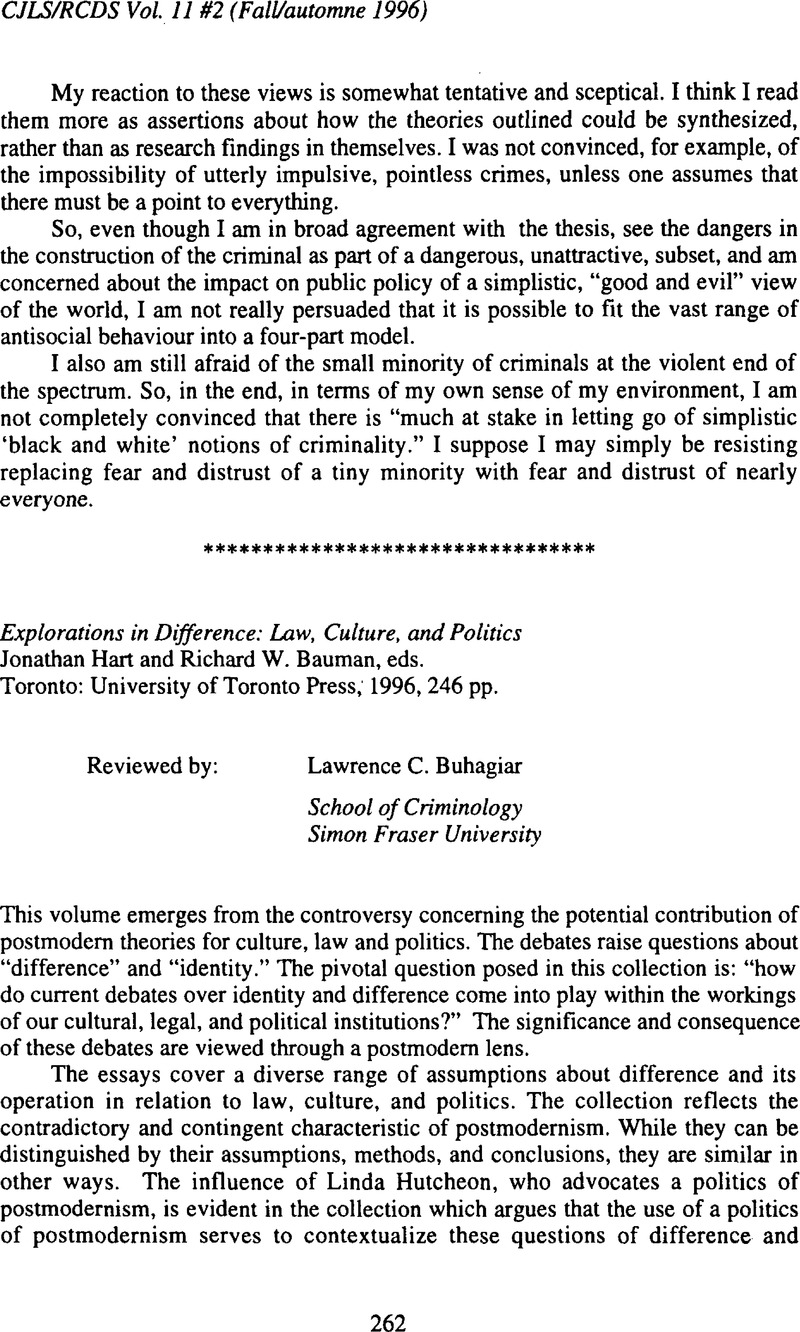No CrossRef data available.
Published online by Cambridge University Press: 18 July 2014

1. See Hutcheon, Linda, The Poetics of Postmodernism: History, Theory, Fiction (London: Routledge, 1988).CrossRefGoogle Scholar
2. Lyotard, Jean-Francois, The Postmodern Condition: A Report on Knowledge, trans. Bennington, Geoff & Massouri, Brian (Minneapolis: University of Minnesota Press, 1984).Google Scholar
3. Rosenau argues that postmodernism is not usurping social sciences but is restructuring it across disciplines. See Rosenau, Pauline Marie, Post-Modernism and the Social Science: Insights, Inroads, and Intrusions (Princeton, N.J.: Princeton University Press, 1992).Google Scholar Lyoytard actually recants his views about narrative in another work. See Lyotard, Jean-Francois, The Postmodern Explained (Minneapolis: University of Minnesota, 1992) at 19–20.Google Scholar
4. Girard, René, Violence and the Scared, trans. Gregory, Patrick (Baltimore: John Hopkins University Press, 1977).Google Scholar
5. Sedgewick, Eve Kosofsky, Epistemology of the Closet (Berkeley: University of California Press, 1990).Google Scholar
6. Nedelsky's argument for rights as relationships has a very Foucauldian ring. See Cooper, Davina, Power in Struggle: Feminism, Sexuality and the State (Washington Square, NY: New York University Press, 1995) at 7–31.Google Scholar Cooper elaborates on Foucault's notion of power as productive and relational. This seems entirely consistent with the arguments made by Nedelsky.
7. While the envisioning of equal constitutional rights conjures up references to liberal feminist thought, Nedelsky's conceptualization of “equal” reflects her contention that rights are about relationships. Thus, any reading of “equal” rights must be done in light of the contingent relationships that exist. The work of Michael Mandel places in doubt the efficacy of “equal constitutional rights.” See Mandel, Michael, The Charter of Rights and the Legalization of Politics in Canada, 2nd ed. (Toronto: Thompson Educational Publishers, 1994).Google Scholar
8. West, Robin, “Jurisprudence and Gender” (1988) 55 University of Chicago L.Rev. 1.CrossRefGoogle Scholar
9. Thomas v. Norris, [1992] 2 C.N.L.R. 139 (B.C.S.C).
10. Jameson, Fredric, Marxism and Form (Princeton: Princeton University Press, 1971) at 70.Google Scholar